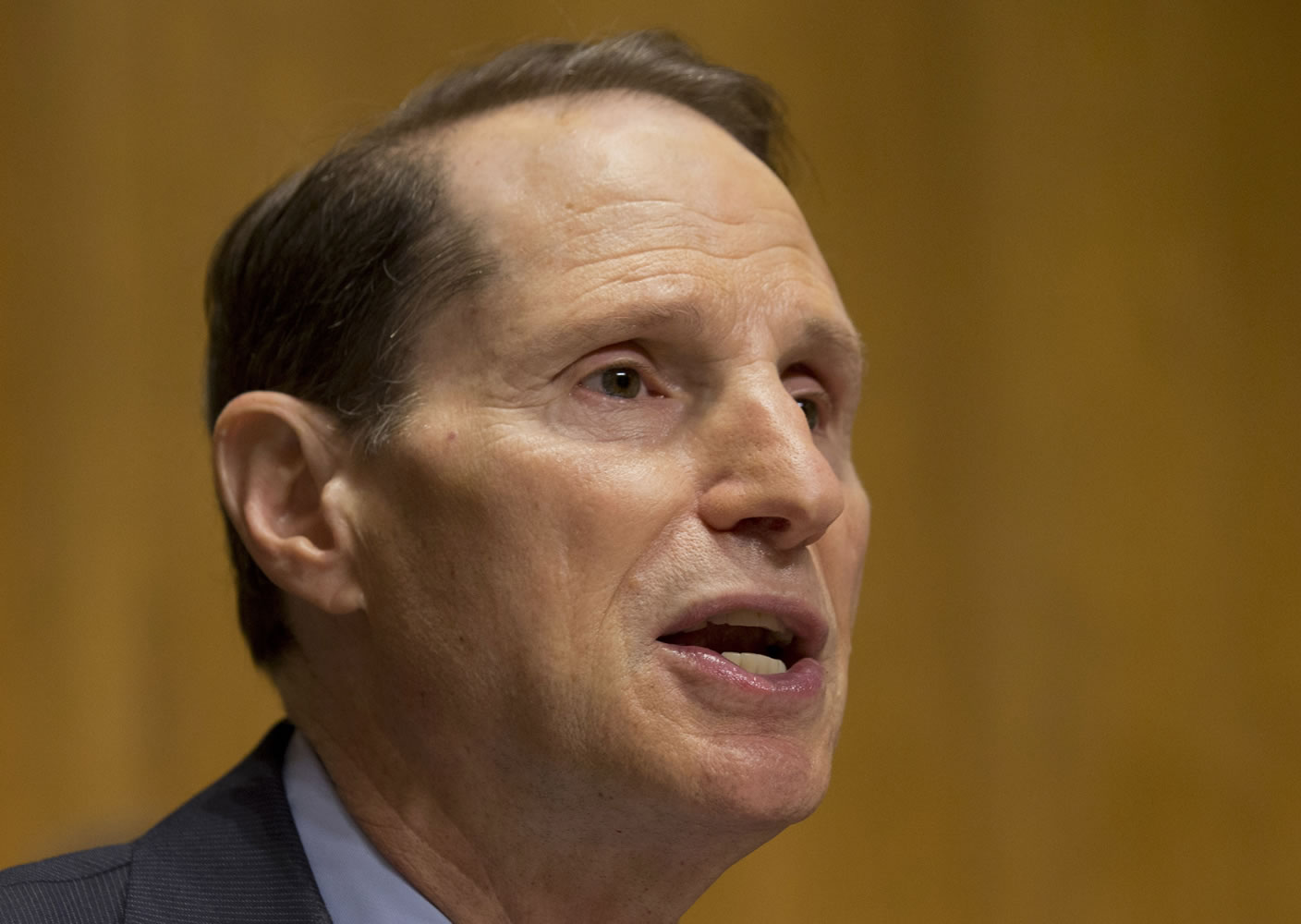PORTLAND — It can be hard to argue with U.S. Sen. Ron Wyden, the Oregon Democrat who has been at the forefront of the biggest tech-policy issues in recent years.
Before “net neutrality” became the tech cause du jour, the Portland lawyer was pushing for “open Internet” rules. Millions across the country supported his opposition to draconian copyright-protection schemes known as SOPA (Stop Online Piracy Act) and PIPA (Protect IP Act), leading to their defeat in 2012.
More recently, Wyden has been a prominent critic — and victim of — domestic surveillance.
Early last year before the Edward Snowden revelations, Wyden pressed the director of national intelligence, James Clapper, on whether the National Security Agency was collecting data on millions of Americans. Clapper said no.
Then last month, the CIA confirmed it had broken into the computers of the Senate Select Committee on Intelligence on which he serves.
Speaking at the TechfestNW conference in Portland earlier this month, Wyden said it may be time for a special prosecutor to review the digital break-in. He noted that if a 19-year-old hacked into Senate staff computers, he or she would be in jail.
Wyden used the speech to call for an overhaul of federal privacy rules to reflect the advance of technology. In particular, he wants phone-privacy protections to be updated along with the Foreign Intelligence Surveillance Act.
Simultaneously he’s challenging net-neutrality rules floated in May by the Federal Communications Commission, which raised concerns that “fast lanes” in the proposal will stifle innovation and make the Internet less of a level playing field.
Wyden in July called on the FCC to go further and reclassify broadband as a telecommunication service, putting broadband providers under the same regulatory umbrella as phone companies.
It makes sense to start treating broadband as an essential utility.
But when you’re concerned about potentially stifling new regulations, it’s a little funny to call for even more regulation, so I played devil’s advocate with Wyden after his speech.
Here’s an edited transcript of our conversation:
What are the chances that broadband reclassification might actually happen?
We are going to prevail. And the reason why, as you know, there’s been this grass-roots uprising, particularly from the Pacific Northwest for strict, enforceable net-neutrality rules.
To be real specific that means no slow lanes, no toll lanes and no paid prioritization. I introduced the first strict net-neutrality bill back in 2006.
But those rules haven’t made it forward. What’s different this time?
What’s different this time is after our PIPA/SOPA win we now have the power of grass-roots support … Nobody thought we had a chance of stopping this (Protect IP Act) bill, which I thought was so fundamentally against the values of an open Internet.
The vote was going to be held on overriding my hold (on the bill) and five days before the vote, 15 million Americans weighed in with calls and emails and letters and our side prevailed.
My point is, for those who think it can’t be done, to get strict rules, to protect net neutrality, I’ll say nobody thought we could block PIPA and SOPA a few years ago.
One question is, if broadband gets reclassified as an essential utility, it might get screwed up just as much that way, by the regulations that follow?
Well, that’s my job as a legislator, to watchdog this every step of the way.
I support reclassification, I support strict net-neutrality rules, and anybody who knows anything about me knows I don’t just think you pass something and then you say, “Oh, it’s all done.”
We’re going to have to watchdog the implementation every step of the way because these powerful interests — major cable companies and others — certainly are not going to give up easily.
Isn’t there a risk that the cure could be worse than the disease if broadband is reclassified? Look what happened to wired phone service.
Again, my job is to stay at it until it’s done right.
What I know now is that what’s under attack is the Internet as we know it today. Which is, after you pay your access charge, you can go where you want, when you want and how you want to do it. I am not going to see that sacrificed to the powerful and the special interests.
What you’re saying — and it’s a good question — is the government can’t run a two-car parade, let alone deal with a media issue. My job is to make sure this is done right.
It’s interesting — you can already kind of pay for priority now by buying a bigger machine, basically, on the other side. So in a way there’s already paid priority.
That’s why it’s time, given the challenge, to lock in (a) bedrock principle of an open Internet.
Everything that I’ve tried to do — whether it’s to write the legal foundation for social media … what I did with the digital-signatures law … what we did with the principle of nondiscrimination in terms of content — (these have) all been designed to promote an open Internet.
And we are really at a crossroads with respect to net neutrality and whether or not we’re just going to say, ‘Gee, you’ve got a lot of dough. You can cut yourself a special deal.’ When some people get a deal on bits, other people suffer.
Does Comcast have more sway than Netflix?
I don’t see it that way at all. Anybody who says it’s between Comcast and Netflix is missing the issue. My policies are trying to make sure all Americans enjoy the fruits of an open Internet.
Those are the principles I’m fighting for.



